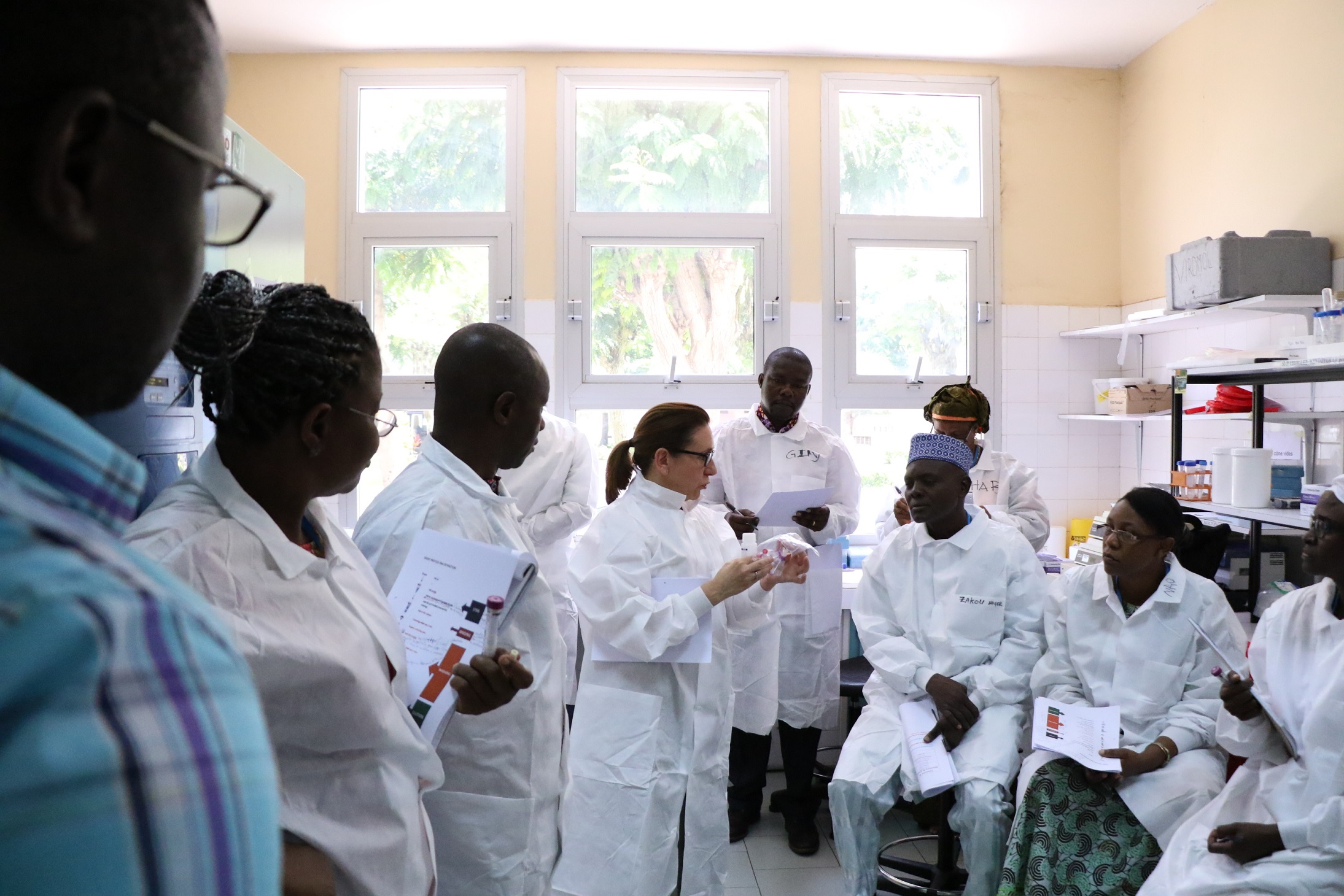Performance monitoring
WHO is committed to assisting with the improvement of global laboratory testing quality for YF. The ability of Global Yellow Fever Laboratory Network (GYFLaN) to deliver accurate, reliable and timely results is the cornerstone of the laboratory component of the EYE Strategy and is critical to outbreak response.
WHO supports quality assurance in YF laboratories in a number of ways. Regional Coordinators for PAHO, AFRO and EMRO facilitate or perform scheduled periodic laboratory assessments, which document the quality assurance practices of the YF laboratories, including assessing standard operating procedures for specimen handling, testing and reporting. Historical shortcomings have been poor quality specimens, shipping delays especially across international borders, shortages of testing supplies, lack of testing equipment and difficulty in maintaining it, inconsistent training in new testing methodology, insufficient and inconsistent standard operating procedures, and communications breakdowns. A laboratory assessment in the African Region by EYE-LTWG in 2018, formed a complete picture of these shortcomings which are often out of the direct control of the laboratories themselves. WHO has sought to mitigate these aspects, all of which affect the quality of YF diagnostic testing results.
Periodic laboratory assessments use a laboratory accreditation checklist to provide objective outcomes that are discussed with the laboratories, and plans for improvement are documented. Assessments take place every 1-2 years. Laboratories that are shown to have good quality in all aspects assessed are WHO Accredited, and are considered a reliable source of results.
External Quality Assessment (EQA) exercises are globally-accepted methods of determining the reliability of test results from particular methods performed in participating laboratories. The use of EQA to demonstrate functional testing capacities, to identify challenges in processes and procedures, and improve the overall quality of testing for pathogens of epidemic and pandemic potential were discussed in details during a recent WHO Public Health Laboratories Webinar Series session. These webinar highlights contain direct links to the full recording and slides. Prior to 2021, YF diagnostic testing methods had not been externally assessed across the entire GYFLaN.
External Quality Assessment (EQA)

A limited EQA for molecular diagnosis of YF was previously conducted and a full-scale molecular EQA is planned by the EYE-LTWG for 2023.
Quality control testing
Within the GYFLaN, National laboratories (NL’s) are required to submit specimens positive for YF for confirmation to Regional Reference Laboratories (RRL’s). In addition, NL’s must submit 10% of their negative samples to the RRL’s for quality control testing to ensure that false-negative results are not being generated.
Control material
A critical component of laboratory quality control is the use of in-house positive and negative controls in YF diagnostic testing, and samples to validate the assays for use in the individual laboratories. The latter is a prerequisite for the use of a test. These samples can be difficult to acquire, especially for serological tests. The EYE-LTWG undertook the acquisition of samples from YF-vaccinated individuals to provide material for future YF EQA, to help YF laboratories with validation activities, and to provide in-house positive controls. These samples will be characterized at a reference laboratory before dissemination to the GYFLaN. For molecular testing, a validation panel with samples of known RNA copy number has been made available to the GYFLaN by the European Virus Archive (EVAg).
ISO accreditation
The International Organization for Standardization (ISO) provides accreditation to diagnostic laboratories that meet certain quality standards. Laboratories that meet ISO standard 15189 are internationally-recognized as providing excellence in testing quality and typically this takes several years. Guidance tools to help toward meeting this standard are:
- Lab quality stepwise implementation tool (https://extranet.who.int/lqsi/content/homepage)
- WHO Guide for the Stepwise Laboratory Improvement Process Towards Accreditation (SLIPTA) in the African Region (with checklist: (https://www.afro.who.int/publications/who-guide-stepwise-laboratory-improvement-process-towards-accreditation-slipta-African)
- Strengthening Laboratory Management Toward Accreditation (SLMTA)
